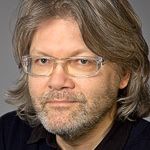Press release -
Northern Academic Leaders Meet in Umeå
This week 31 leading representatives for ten different countries will meet at Umeå University in Sweden. During three days these leaders will discuss how to optimize the conditions for research and education to benefit the northern and arctic regions.
Umeå University’s Vice-Chancellor Lena Gustafsson is enthusiastic about the strong influx to the meeting.
– It is important that we strengthen our networks for research and education in the north, not least now, seeing how the arctic area increasingly comes into focus, she says.
In addition to the eight arctic countries – Denmark, Finland, Iceland, Norway, Sweden, Canada, Russia and the US – universities in Japan and the UK are also represented. All attending schools are members of the University of the Arctic (UArctic) – a network organisation that consists of more than 170 universities, institutes, and other organisations working for arctic research and higher education.
Umeå University’s arctic centre, Arcum, hosts the meeting.
Parallel to the Vice-Chancellor meeting there is a corresponding program for students and doctoral students.
Questions about the meeting can be directed at:
UArctic Vice-Chancellor forum:
Peter Sköld,
director of Arcum, Umeå University
phone + 46 70-363 04 21
UArctic student forum:
Lena Maria Nilsson,
research coordinator at Arcum, Umeå University
phone +46 70375 86 42
Topics
Categories
Umeå University
Umeå University is one of Sweden's largest institutions of higher learning with over 32,000 students and 4,200 employees. We have a well-established international research profile and a broad range of study options. Our campus constitutes an inspiring environment that encourages interdisciplinary meetings - between students, researchers, teachers and external stakeholders. Through collaboration with other members of society, we contribute to the development and strengthen the quality of our research and education.

